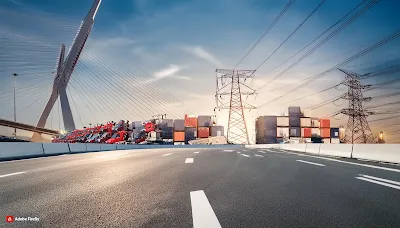The Financial Drain of Pakistan’s State-Owned Enterprises: An Urgent Call for Privatization
In a nation where every rupee counts, the financial health of state-owned enterprises (SOEs) is of paramount importance. Yet, despite generating a staggering Rs12 trillion in annual revenue, Pakistan's SOEs remain a significant burden on the taxpayer. With the power sector leading in losses, these entities have been draining the nation’s resources and jeopardizing its economic stability. A closer look at the recently released Aggregate Annual Report on Federal SOEs for Fiscal Year 2023 by the Ministry of Finance sheds light on the pressing need for reform and privatization.
A Snapshot of SOE Financial Performance
According to the report,
Pakistan’s SOEs collectively grossed Rs11.92 trillion in revenue in 2023,
marking a 15% increase from the previous year. This growth, however, is
primarily attributed to inflationary pressures rather than genuine performance
improvement. While the oil and financial sectors drove this revenue surge, the
SOEs’ financial health tells a different story.
The report revealed that total
aggregate profits were Rs703 billion. In stark contrast, loss-making SOEs
reported an aggregate loss of Rs905 billion, up by 23% from the previous year.
This imbalance resulted in net aggregate losses of Rs202 billion, reflecting a
troubling 25% increase.
Furthermore, the book value of
assets rose by 16% to Rs35.22 trillion, but liabilities jumped by 20% to
Rs29.72 trillion, indicating higher financial leverage. Consequently, net
equity decreased by 2.55%, standing at Rs5.496 trillion. These figures
highlight an unsustainable financial trajectory for the nation’s SOEs.
Power Sector: The Elephant in the Room
Among the most significant
contributors to these losses is the power sector, particularly on the
distribution side. Aggregate losses in this sector amounted to Rs304 billion,
despite a massive Rs759 billion spent to support it. This scenario reflects not
just inefficiency but a systemic problem within the sector.
The infrastructure sector,
notably the National Highway Authority, also exacerbates the loss-making
scenario with high financial costs. Railways continue to be another drain on
the economy, contributing significantly to the rising losses. Over the past
decade, these entities alone have accumulated aggregate losses amounting to
Rs5.595 trillion.
Government Support: A Band-Aid on a Bullet Wound
In an attempt to sustain these
ailing SOEs and support the economy, the government has provided substantial
financial aid. This includes aggregate support of Rs1.021 trillion, comprising
Rs267 billion in equity injections, Rs223 billion in grants, Rs403 billion in
subsidies, and Rs128 billion in loans.
While these measures
temporarily alleviate financial pressures, they do not address the underlying
issues of corruption, mismanagement, unnecessary recruitment for political
reasons, and lack of commitment and competence among employees. Such problems
are deeply rooted and require structural changes that mere financial injections
cannot solve.
Reasons Behind the Financial Drain
The primary reasons for the
ongoing financial struggles of Pakistan’s SOEs include:
- Corruption: Corruption within SOEs
leads to financial leakages, inefficient operations, and loss of public
trust. Funds intended for development and maintenance are often
misappropriated, leading to poor performance and increased losses.
- Mismanagement: Inefficient management
practices result in operational inefficiencies, wastage of resources, and
inability to compete effectively in the market. This is often due to a
lack of professional expertise and accountability.
- Unnecessary Recruitment
for Political Reasons:
Hiring individuals based on political affiliations rather than merit leads
to an overstaffed and underperforming workforce. This practice increases
operational costs without corresponding improvements in performance or
productivity.
4. Lack of Commitment and Competence: Employees often lack the skills and dedication needed to improve operations, worsening SOEs' financial woes. This issue frequently stems from politically motivated recruitment rather than merit-based hiring.
The Case for Privatization
In today’s rapidly evolving
economic landscape, it is increasingly clear that running commercial activities
and businesses is not the job of the government. Privatization of SOEs can
offer a viable solution to save taxpayer money and enhance efficiency. Here’s
why:
- Efficiency and
Professional Management:
Private enterprises are typically more efficient due to the competitive
pressures they face. They are driven by profit motives, which leads to
better management practices, cost control, and innovation.
- Reduction of Political
Interference:
Privatization minimizes the influence of political considerations in
business operations. Decisions in private companies are based on business
logic and efficiency rather than political expediency.
- Attraction of Investment: Privatization can attract
domestic and foreign investment, bringing in capital and expertise that
can help turn around failing enterprises. This can also lead to job
creation and economic growth.
- Relief for Taxpayers: By offloading loss-making
entities, the government can reduce its fiscal burden, freeing up
resources for essential public services like healthcare, education, and
infrastructure development.
- Enhanced Accountability
and Transparency:
Private companies are accountable to their shareholders and must maintain
transparency in their operations. This reduces the scope for corruption
and inefficiencies that plague many SOEs.
Conclusion
The financial state of
Pakistan's SOEs presents a clear case for urgent reform. Despite their
significant revenue generation, these entities continue to be a substantial
drain on the nation’s resources due to inefficiencies and systemic issues. The
government's support, while substantial, acts merely as a temporary fix rather
than a solution to the root problems.
In an era where agility,
efficiency, and professionalism are crucial, privatization stands out as a
practical solution to transform Pakistan's SOEs. It promises to reduce the
financial burden on taxpayers, enhance efficiency, and drive economic growth.
It is high time for Pakistan to embrace privatization and steer its SOEs
towards a sustainable and prosperous future.
Engage with Us: What are your thoughts on the
privatization of Pakistan’s state-owned enterprises? Do you believe it’s the
right step towards economic stability? Share your views in the comments below!



Very interesting article!
ReplyDelete